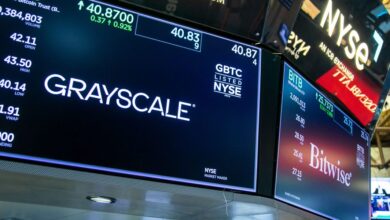JPMorgan’s Jamie Dimon Renews Crypto Criticism Amidst the Rise of JPM Coin

In a recent appearance before the Senate Banking Committee, JPMorgan Chase CEO Jamie Dimon reiterated his long-standing skepticism towards cryptocurrencies, suggesting that, if he were the government, he would “close it down.” This comes as a somewhat paradoxical stance given JPMorgan’s significant strides in blockchain technology, exemplified by the success of their digital token, JPM Coin.
Dimon’s history of scathing remarks against Bitcoin includes comparisons to “tulip bulbs,” a “hyped-up fraud,” and even likening it to a “pet rock.” Despite his outspoken opposition to cryptocurrencies, JPMorgan has quietly emerged as a pioneer in blockchain innovation.
The Senate hearing, titled “Annual Oversight of Wall Street Firms,” saw CEOs from major banks discussing various financial matters. Dimon, along with his counterparts from Goldman Sachs, CitiGroup, and others, presented their perspectives on the current state of the financial industry.
During the hearing, Dimon expressed his enduring opposition to cryptocurrencies, asserting that their primary use case revolves around criminal activities such as money laundering, tax avoidance, and facilitating illegal transactions due to their relative anonymity. Senator Elizabeth Warren, also a vocal critic of the crypto sector, engaged in a discussion with Dimon on these concerns.
Ironically, JPMorgan’s critical stance on crypto stands in contrast to its significant involvement in blockchain technology. The bank’s notable contribution is the creation of “JPM Coin,” a digital token operating on the Ethereum blockchain. Introduced in 2017, JPM Coin has gained traction among corporate clients, including industry giants like FedEx and Siemens, offering a swift, secure, and cost-effective solution for large-sum transactions.
Recent disclosures by JPMorgan revealed that the daily transaction volume involving JPM Coin has surpassed $1 billion, highlighting its growing acceptance and utility in the financial landscape. As the crypto markets rebound from the challenges of 2022, Dimon’s renewed criticism raises questions about the evolving relationship between traditional financial institutions and the ever-expanding realm of blockchain and cryptocurrencies.



